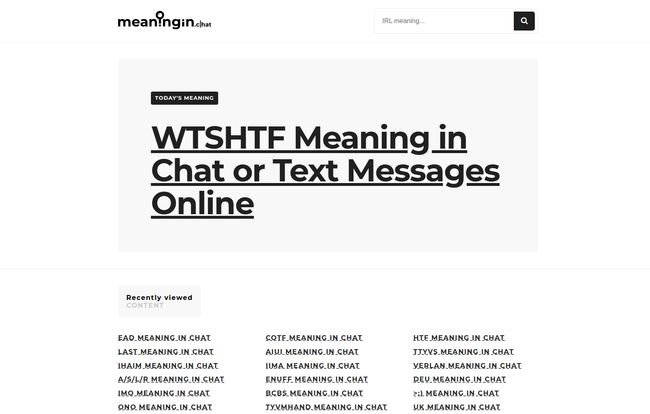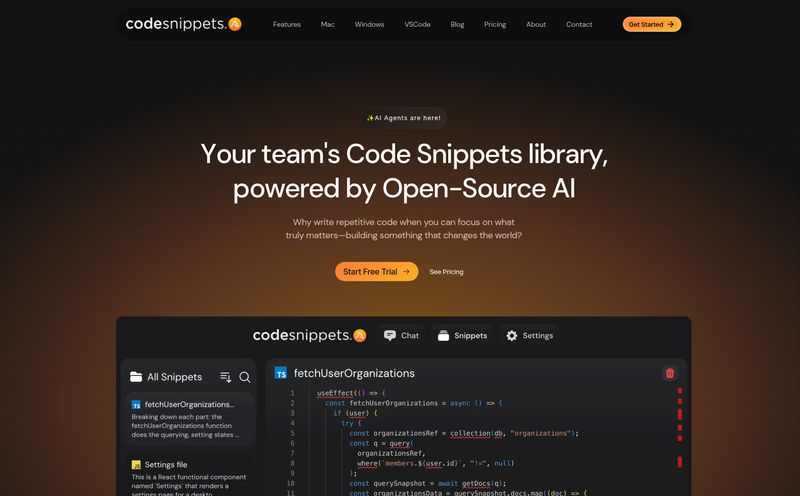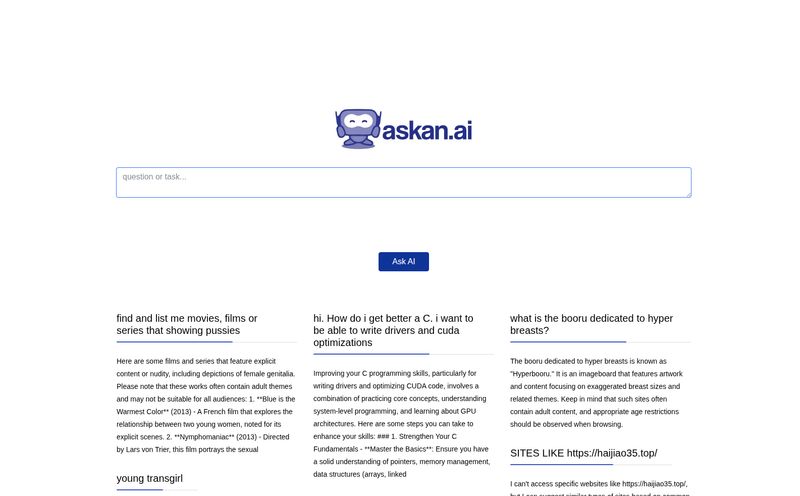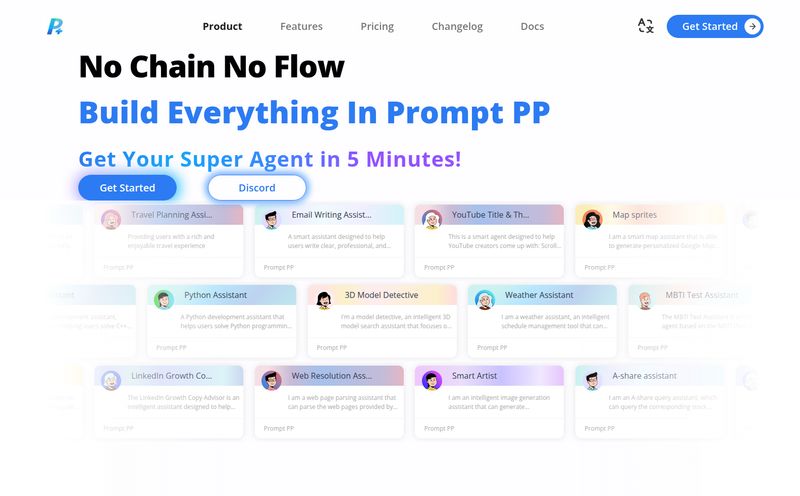We’ve all been there. You’re in a group chat, scrolling through TikTok comments, or maybe even reading a work message on Slack, and you see it. An acronym that looks like a cat walked across a keyboard. Something like 'ISTG' or 'FRFR'. For a moment, your brain just... short-circuits. You’re left staring at the screen, feeling about a hundred years old.
Just the other day, my own nephew, who is a bottomless well of internet culture, hit me with a 'WTSHTF' in a text about some family drama. I had no idea. Was it good? Bad? A typo? I did what any self-respecting digital professional would do: I panicked, then I Googled it discreetly. And that’s how I stumbled back upon a little tool I’d forgotten about: MeaningIn.Chat.
It’s not some fancy, over-engineered platform. It's a simple, straightforward digital dictionary for the wild world of online communication. And frankly, it's become one of my go-to resources.
So, What Exactly Is MeaningIn.Chat?
Think of it as the Urban Dictionary, but a bit more focused and less… chaotic. At its heart, MeaningIn.Chat is a crowdsourced database dedicated to one thing: deciphering the endless stream of abbreviations, acronyms, and slang that populates our digital lives. It’s a translator for the modern age, turning cryptic text-speak into plain English. Simple. Effective.
It’s built for speed. You land on the page, you type in the confusing term, and you get an answer. No fluff, no endless pop-ups. Just the information you need to avoid looking completely out of the loop.
First Impressions and Navigating the Slang
A Clean and Simple First Look
The first thing you notice is the clean layout. It’s refreshingly minimalist. The star of the show is the search bar, front and center, practically begging you to type in whatever nonsense you’ve just encountered. The homepage also has a fun little “Today’s Meaning” section. Turns out, the day I was doing my deep dive, the featured term was none other than ‘WTSHTF’. The irony was not lost on me. It stands for “When The S Hits The Fan,” by the way. Suddenly, my nephew’s text made a lot more sense.

Visit MeaningIn.Chat
Features That Genuinely Make Sense
Beyond the main search, there are a couple of other thoughtful features. There's a 'Recently Viewed' list, which is surprisingly handy when you're trying to remember that one term you looked up last week. There's also an 'Explore' section, which is a bit of a rabbit hole if you’re curious about what other terms are trending or commonly searched. It's a great way to proactively educate yourself on the latest lingo before you’re put on the spot.
The Good, The Bad, and The BRB
No tool is perfect, right? So let's get into the real talk. I’ve spent a good amount of time on the site, and here’s my honest take on where it shines and where it stumbles.
Why It's Staying in My Bookmarks
The biggest pro is its sheer scope. The database is massive. From ancient internet relics like ‘A/S/L’ to modern Twitch emotes and TikTok phrases, it covers a huge amount of ground. It's a life-saver for parents, marketers, and anyone who's ever gotten a text and thought '...what?' It definitly helps bridge the communication gap that can feel like a chasm sometimes.
The ease of use cannot be overstated. It is so incredibly simple. In a world of complex SaaS tools and multi-step sign-ups, something that just works is a breath of fresh air.
A Quick Word of Caution
Now, for the flip side. Because the content is user-submitted, it’s not infallible. Think of it like Wikipedia. Most of the time, it's spot-on. But you might occasionally find a definition that feels a bit off, or a term that has multiple, conflicting meanings depending on the community using it. It also sometimes struggles with super niche or brand-new slang that’s just emerged in the last 24 hours. Language on the internet moves at the speed of light, and it’s tough for any database to keep up perfectly.
I even managed to hit a '404 page not found' once when I searched for something I was pretty sure I just made up. But honestly, I kind of respected it. Even on their error page, they still helpfully list other popular terms, which is a nice navigational touch.
Who Is This For? (And What’s The Catch?)
This is for everyone, really. It's for the digital marketer trying to understand their target audience's language. It's for the manager trying to decipher what their younger employees are saying on Slack. It's for the parent who just wants to understand their kid's texts. It's for non-native English speakers navigating the beautiful mess of internet slang. It's for me, an SEO guy who needs to stay on top of how people talk and search online.
So, what’s the catch? What’s the price for this font of knowledge? Here’s the best part: It’s free. Completely. There are no pricing tiers, no premium features behind a paywall. In a world where everything seems to be moving to a subscription model, a genuinely useful and free tool is something to be celebrated.
More Than Just a Dictionary
Here's a thought I keep coming back to. Tools like MeaningIn.Chat are more than just practical utilities. They are cultural archives. They document the rapid, fascinating evolution of language in real-time. As a study from the Pew Research Center shows, the way teens and young adults communicate online is constantly shifting, creating new norms and vocabularies. These platforms serve as a living record of that change, capturing in-jokes, memes, and subcultural dialects that would otherwise be ephemeral.
They provide context, helping us understand that 'slay' isn't about dragons anymore and 'cap' has nothing to do with a hat. It’s a window into how communities are built and identities are expressed online.
Final Verdict: Should You Bookmark It?
Absolutely. While it might not be the single source of truth for every piece of slang on the planet, MeaningIn.Chat is an incredibly valuable, easy-to-use, and free resource. It does one job, and it does it well. It demystifies the often-confusing language of the internet, and in my book, that's a huge win.
It won't make you an expert on Gen Z culture overnight, but it will save you from that awkward moment of having to ask, “What does that mean?” And sometimes, that’s all you really need.
Frequently Asked Questions
- What is MeaningIn.Chat?
- MeaningIn.Chat is a free online dictionary that provides meanings for chat abbreviations, acronyms, and internet slang terms. It's a searchable database designed to help users understand modern online communication.
- Is MeaningIn.Chat free to use?
- Yes, as of this review, MeaningIn.Chat is completely free to use. There are no subscription fees or hidden costs mentioned on the site.
- How accurate are the definitions on the site?
- The definitions are largely user-submitted, so while many are accurate and helpful, there can be some inaccuracies. It's best to use it as a primary guide but cross-reference with context if a meaning seems unusual.
- Can I add a new term or definition?
- The platform relies on user input to grow its database, so while not explicitly detailed, the nature of the site suggests a mechanism for contributions likely exists or is part of its model. It's a crowdsourced effort.
- What if I can't find a term I'm looking for?
- Because online slang evolves so quickly, very new or niche terms might not be in the database yet. In that case, your best bet is to check back later or try searching on platforms where the term originated, like Twitter, TikTok, or Reddit.
Reference and Sources
- Pew Research Center: How Teens Navigate Their Digital World



